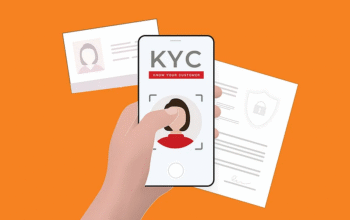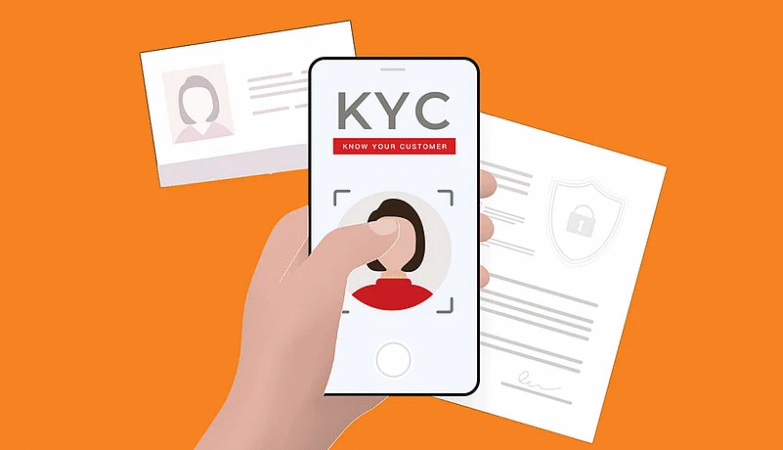As global supply chains become increasingly digital and customer expectations for delivery speed, accuracy, and visibility grow, transportation companies are recognizing the need for robust, custom-built software to stay competitive. Whether it’s real-time fleet tracking, dynamic route planning, cargo visibility, or seamless system integrations, having the right software can be the difference between scaling effectively or falling behind.
However, building and implementing transportation software is not a plug-and-play decision. The success of your digital transformation depends heavily on the partner you choose to develop that software. While there are hundreds of software firms in the market, not all of them possess the domain expertise, technical capacity, or strategic alignment necessary to deliver software that actually solves complex transportation challenges.
This article serves as a strategic guide for business leaders, CTOs, and logistics operators who are considering a software development partner. It outlines what to look for, what to avoid, and why selecting the right transportation software development company is a foundational step toward operational excellence and long-term growth.
Understanding Your Business Goals Before You Choose a Partner
Before evaluating any software company, clarity on your own business priorities is essential. Are you looking to build a fully customized TMS from the ground up? Are you aiming to optimize last-mile delivery? Do you need predictive analytics for fuel efficiency or route planning? Or are you simply replacing an outdated legacy system with a modern, cloud-based platform?
By understanding what problems you’re solving, you’ll be better positioned to assess whether a development partner aligns with your goals and whether they’ve solved similar challenges in the past.
Why Domain Expertise Matters
Transportation is a complex and highly specialized industry. It’s not enough for a software company to know how to write clean code or design user-friendly interfaces—they also need to understand how transportation businesses operate.
A company with domain expertise will know the difference between route dispatching and dynamic re-routing. They’ll understand the significance of driver HOS (Hours of Service) compliance, ELD mandates, cross-border freight regulations, fuel tax reporting, and the intricate timing involved in multi-modal logistics. Without this foundational knowledge, even the best-built software may fail to address real-world constraints or nuances.
When evaluating potential partners, look for companies that have worked with freight carriers, third-party logistics providers, delivery networks, or transportation-focused startups. Ask for specific use cases, platforms they’ve built, and measurable outcomes achieved.
Technical Capability and Scalability
Technology decisions today have long-term implications. The partner you choose should not only be capable of building the solution you need now, but also capable of scaling and evolving that solution as your business grows.
Assess whether the development company has experience with cloud-native architecture, API development, real-time tracking systems, mobile-first platforms, and microservices-based deployment. These technical foundations ensure your platform can scale smoothly, integrate with external systems, and remain resilient under heavy operational loads.
Additionally, ask about the company’s development process. Do they use agile methodologies that allow for iteration and user feedback? Do they conduct automated testing? What’s their DevOps or deployment pipeline like? These details speak volumes about the company’s technical maturity.
Customization vs. Off-the-Shelf Thinking
One of the biggest benefits of working with a custom software partner is building something that fits your exact workflow. However, some companies claim to offer custom solutions but in reality, push pre-built templates with limited flexibility.
A true custom software development firm will take time to understand your workflows, user personas, and operational goals. They won’t try to shoehorn your business into a pre-defined mold. Instead, they will create a roadmap tailored to your specific architecture, third-party systems, and performance goals.
Custom features might include tailored route optimization algorithms, client-specific reporting dashboards, integration with proprietary hardware, or specialized compliance features based on your service region.
Integration Experience
Most transportation businesses use a stack of interdependent platforms: ERPs, TMS, CRM, WMS, telematics systems, GPS tracking, fuel management tools, and accounting software. A development partner must be proficient in integrating all of these systems to create a seamless flow of data.
Integration expertise means more than just connecting APIs. It means ensuring data consistency, secure authentication, failover planning, and aligning workflows across platforms. An experienced partner will have a proven track record of integrating software in complex environments—without compromising speed or data integrity.
User-Centered Design for Field Teams
Your software is only as useful as it is usable—especially for field teams like dispatchers, warehouse operators, and drivers. A reliable development company places strong emphasis on user-centered design and validates UI/UX decisions with input from actual users.
This includes creating clean mobile interfaces that work offline, intuitive dashboards for fleet managers, and responsive web apps for administrative tasks. Accessibility, load time, and adaptability to different screen sizes and devices should also be considered from the start.
Ask whether the company conducts user testing throughout the development cycle, and whether they’re open to iterating based on real-world feedback.
Data Security and Compliance
Transportation systems handle sensitive information daily—shipment details, customer addresses, vehicle locations, driver identities, and financial data. Any compromise in data security can lead to massive operational, legal, and reputational risks.
Ensure your development partner follows best practices in software security. This includes encrypted data storage and transmission, access control policies, vulnerability testing, and compliance with data protection laws such as GDPR or CCPA, depending on your market.
If your operations cross borders or involve regulatory bodies (like FMCSA in the U.S.), make sure your partner understands those compliance standards and can build features that automate or streamline regulatory reporting.
Post-Launch Support and Long-Term Value
Software isn’t a one-time product. It’s a living system that needs monitoring, updates, feature improvements, bug fixes, and performance optimization. Many transportation businesses underestimate the importance of long-term support—until they experience delays, outages, or unpatched vulnerabilities.
A reliable partner will offer post-launch support services, SLAs (Service-Level Agreements), and a clear roadmap for how the software will be maintained over time. Ask about ongoing monitoring, incident response, and how feature updates are managed after deployment.
Pricing Transparency and Budget Alignment
Software development is an investment, and while cost shouldn’t be the only deciding factor, transparency is non-negotiable. A trustworthy company will walk you through their pricing model, break down estimates by module or phase, and set expectations for change requests or scope adjustments.
Be wary of firms that offer suspiciously low initial quotes, only to escalate costs later with hidden charges. A well-scoped proposal that aligns with your priorities and growth trajectory will always yield better long-term value.
Communication and Project Management
No matter how talented a development team may be, poor communication can derail even the best projects. Look for a partner that assigns a dedicated point of contact, offers regular status updates, uses project tracking tools (like Jira or Trello), and invites collaboration at every milestone.
You want a partner that doesn’t just “take your brief and run.” The best teams ask questions, challenge assumptions, and bring proactive suggestions based on their experience. This collaborative mindset ensures your platform is not only functional but also innovative.
Reputation and Client References
Before finalizing any decision, research the company’s reputation. Check their case studies, client testimonials, and online reviews. Better yet, request references and speak directly with past clients. Ask about their experience during development, the quality of the delivered product, and how the company handled challenges or changes.
A seasoned Transportation software development company will have no hesitation in sharing success stories that showcase measurable business impact—whether in delivery speed, operational cost reduction, or improved fleet visibility.
Final Thoughts
Choosing the right transportation software development company is more than a procurement decision—it’s a strategic investment in your operational infrastructure and competitive future. The right partner can help you automate workflows, gain real-time insights, reduce delivery errors, and scale more efficiently in a dynamic marketplace.
By prioritizing domain expertise, technical scalability, integration capabilities, and user-centered design, businesses can ensure that their digital investments produce lasting value. In a world where transportation logistics are increasingly powered by intelligent systems, choosing your development partner wisely is not just smart—it’s essential.
Let your software reflect the strength, agility, and vision of your transportation business. The right development team will make sure it does.










